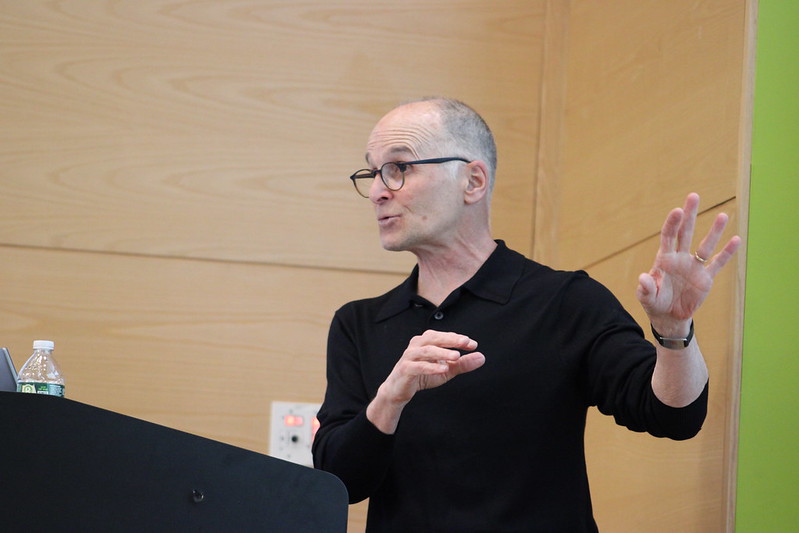On April 11, the University of Massachusetts Political Economy Research Institute hosted UMass Ph.D. alumnus George DeMartino, a professor of international economics at the University of Denver. DeMartino discussed his recent publication, “The Tragic Science: How Economists Cause Harm (Even as They Aspire to Do Good).”
The Political Economy Research Institute (PERI) is an independent unit within the University, but is closely associated with the Economics Department. The institute conducts and promotes interdisciplinary research and has a special focus on human and environmental wellbeing, according to its website.
DeMartino served as a labor negotiator for the American Federation of Labor and Congress of Industrial Organizations (AFL-CIO) and American Federation of State, County and Municipal Employees (AFSCME) unions in the late 1970s and early 1980s. This era marked a large push against unions and the underprivileged, often in the name of economics. “I couldn’t understand how a profession that prioritizes social good could tolerate the social harm that was visible in the 1980s,” DeMartino said. This turmoil led him to attain his Ph.D. in economics at UMass.
“The Tragic Science” posits that economists do not usually consider the moral or ethical results of policies when they are enacted. “About 15 years ago, I realized that there is no consideration of ethics in economics,” DeMartino said. “In every other field there’s a body of ethics, there’s medical ethics, ethics in psychology, ethics in biology. But not in economics.”
“As George will tell you, there is no field of professional economics ethics,” said professor and co-director of PERI Gerald Epstein. “But George is almost singlehandedly creating one.”
DeMartino’s first book, “The Economist’s Oath” attempted to get economists to reassess the ethical implications of what they do. In his second book, “The Oxford Handbook of Professional Economic Ethics” DeMartino laid out ethical considerations that economists should consider.
“I’m trying to create a new field of professional economic ethics,” said DeMartino. “Not just a code you can slap on a wall, a new system of inquiry.”
DeMartino’s critiques of economists revolve around what he calls irreparable ignorance, or a lack of the information needed to “solve” problems that fall on economists. He categorizes this ignorance into three divisions of knowledge problems: deferred knowledge, cruel conundrums and inprinciple unknowables.
Deferred knowledge issues arise when the economist only receives the information after it is relevant. Cruel conundrums highlight how knowledge of the impacts of an action is only known after the action is taken.
These information gaps force economists to evaluate how a solution may unfold using counterfactuals, or unreal prognosticative narratives constructed through data, thought or models. The use of what specific counterfactuals to use is an ongoing debate within economic thought, but DeMartino argues that counterfactuals are often excuses by economists to disregard the moral implications of what they profess.
The orator’s ideas on counterfactuals inspired some critical questions from the sizable audience of students and professors assembled in Crotty Hall. Among those critical was economics professor Jayati Ghosh, who said that the talk was “Quite delightful to hear, even if it’s depressing.”
For DeMartino, the moral issues of the economics profession are systemic. The Decision Making Under Deep Uncertainty association, abbreviated as DMDU, was offered as a possible solution.
“We are trained in economics to approach irresolvable moral problems by turning them into simple math problems, and then thinking that when you do the math you have solved the underlying moral problem,” DeMartino said. “Moral geometry is not the way to go. We should not be the determinators of who among the stakeholders are harmed.”
Daniel Frank can be reached at difrank@umass.edu.




















